|
|
||
|
Pro Tools
FILMFESTIVALS | 24/7 world wide coverageWelcome ! Enjoy the best of both worlds: Film & Festival News, exploring the best of the film festivals community. Launched in 1995, relentlessly connecting films to festivals, documenting and promoting festivals worldwide. Working on an upgrade soon. For collaboration, editorial contributions, or publicity, please send us an email here. User login |
THE TURIN HORSE and BELA TARRstill from the film THE TURIN HORSE (2011) THE TURIN HORSE (2011), the last film by celebrated Hungarian filmmaker Bela Tarr, screened in Reykjavik tonight at the 8th Reykjavik Film Festival (RIFF). The film is 2 ½ hours long but despite its hard subject matter and rough arthouse style, it holds onto its full audience from beginning to end. At the end of the screening the master filmmaker himself attended a Q and A for inquiring indie film buffs. This is a difficult film to work through and while sometimes frustrating, it only is so due to the relentless realism of a hard and weary life. The film is set after an event in Turin on January 03, 1889 after philosopher Friedrich Nietzsche saw a hansom cab driver whipping his horse and was thereafter very disturbed by what he saw, so much so that he wrote a short story about the horse. What ever happened to the horse? THE TURIN HORSE is Bela Tarr's answer, focusing on six days of the hansom driver and his daughter and their rough life spent in a stone house in isolation. While we only watch six days we get a sense of the lifetime of monotony and hardship they endure day after day, just surviving against the elements, outside threats and starvation. There is no plot here; rather, the plot is the non-plot plot. We sit for 2 ½ hours watching the couple struggle, stuck inside their stone house during a storm. Oh, and there’s the ‘Turin Horse’ they use for all their transportation and cargo. While the film is laborious to watch- black and white and real time with no 'star' actors and very little effects- we are nevertheless transported to another world and this form of cinema never fails to fill its viewer with a sense of awe and wonder, ‘you mean people actually lived like this!?’ Further, while you might be tempted to pick up your mobile and SMS friends during this seemingly uneventful nonstory story, you realize, ‘hey, if they lived a whole lifetime like this I can surely spend a few hours living like this with them’, and therein lies the cinematic magic this film holds over its viewer. Why do we watch films, if not to be transported? And if a film can take us to the future and into our wildest imaginations, why not go deep into the past or into the wild where technology is nil and where isolation is ubiquitous? This is a very timely film, for nothing could contrast more with our modern day existence and make its viewer watch if not out of interest then out of sheer amazement over how times and lifestyles have changed and continue to change over time. What an unusual, painful and enlightening triumph this film is to watch; a bit like life itself. -witten by Vanessa McMahon, September 27, 2011.
Q and A with director Bela Tarr. Bela came onto the stage and began by saying: BELA: Thank you all for coming and wasting your time. This story began with the writer who had a short story about a Nietzsche anecdote but we finished this story with a question: ‘What happened with the horse?’ Well, this film is our answer. QUESTION: Well, this is a bizarre film, I have to say. Can you tell us… Is this a kind of non cinema cinema? Like an anti-cinema? BELA: I don’t know. Maybe it’s more than a movie or less than a movie. That’s your decision. QUESTION: Where was this filmed? I mean, where is this horrible place where wind blows all the time and with such horrible elements? BELA: After my last film which we shot in Corsica, I wanted my next film to be shot no more then 15 km from my house. LOL. But THE TURIN HORSE we ended up shooting 80 km’s from my house. And the house we filmed in, this was a real house, not a plastic one. Then we used a lot of wind machines and all the other movie stuff. QUESTION: Okay, what made you want to film this movie? There is no joy in this story. It is the bleakest film I have ever seen. The characters only struggle and the long awaited 7th day never comes. Can you tell us why you made such a bleak film? BELA: As I said, everything is in the film. You can find all your answers in it. And anyway, why do you need a 7th day? QUESTION: You’re a legendary filmmaker. Do you have any special message or reason behind making your films? BELA: Well, this is my last film. Maybe I wanted to get away from life. You know, this life. Fucking real life where nothing comes and nothing happens It’s just real life. Never in my life I didn’t think about art or any specific things. I just asked, ‘What is happening?’ ‘What is the real life?’ Because always the real issue is ‘What is the life?’ That is the real answer. QUESTION: Okay, thank you. And this is off the track but tell us, how did you find such a melancholic horse? I mean, the casting there was perfect. BELA: It’s all casting. When I choose someone I watch their personality. Who is he? Who are they? They are not acting just being. They are there. A human presence, something that is deep. When a character in a film and the actor are similar you are safe. I’m listening to just personality. The horse was the same. LOL. I needed a horse that didn’t want to work and we found a horse at an animal market in Hungary near the Romanian border. It was the most inhumane thing I ever saw. They said it was a bad horse so we bought it and took it home. But now the horse is doing fine. She is pregnant and by the beginning of November she will have a baby. QUESTION: One last question. Is this really your last film? BELA: Yes. I’ve done film for 35 years and I’m done. At this point I want to protect my work from myself. There is a danger for an artist to not stop working at the right time. What can I do now? I’m thinking about starting a film school my way. Not like all the other film schools in the world as they are just educating and not creating. I want to help and give a chance to filmmakers who are talented and need support. That’s what I want to do and can do. And that’s enough. Written and transcribed by Vanessa McMahon, September 27, 2011.
STAY TUNED WITH A ONE-ON-ONE INTERVIEW WITH BELA TARR COMING UP! LEGENDARY DIRECTOR, BELA TARR
28.09.2011 | Reykjavik International Film Festival's blog Cat. : actor Art film Artist Bela Talbot Bela Tarr BELA TARR COMING cab driver Director driver Entertainment Entertainment Film Film genres Films Friedrich Nietzsche Hungary Legendary Person Career Quotation Religion Religion Reykjavik SMS Social Issues Social Issues Supernatural the 8th Reykjavik Film Festival The Turin Horse THE TURIN HORSE and BELA TARR transportation Turin Vanessa McMahon writer PEOPLE
|
LinksThe Bulletin Board > The Bulletin Board Blog Following News Interview with EFM (Berlin) Director
Interview with IFTA Chairman (AFM)
Interview with Cannes Marche du Film Director
Filmfestivals.com dailies live coverage from > Live from India
Useful links for the indies: > Big files transfer
+ SUBSCRIBE to the weekly Newsletter Deals+ Special offers and discounts from filmfestivals.com Selected fun offers
> Bonus Casino
User imagesAbout Reykjavik International Film FestivalThe EditorUser contributions |



















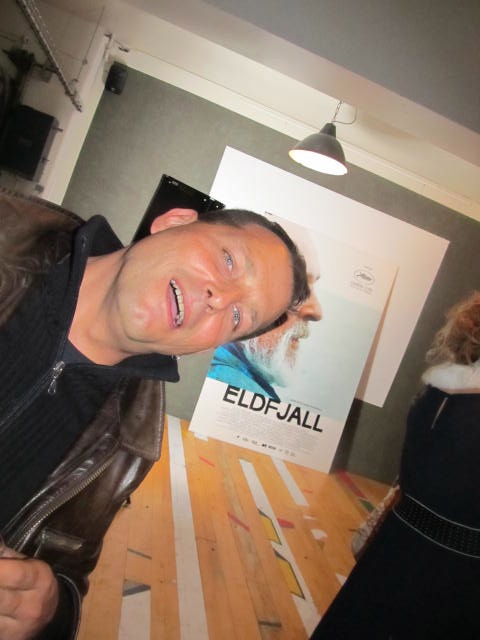
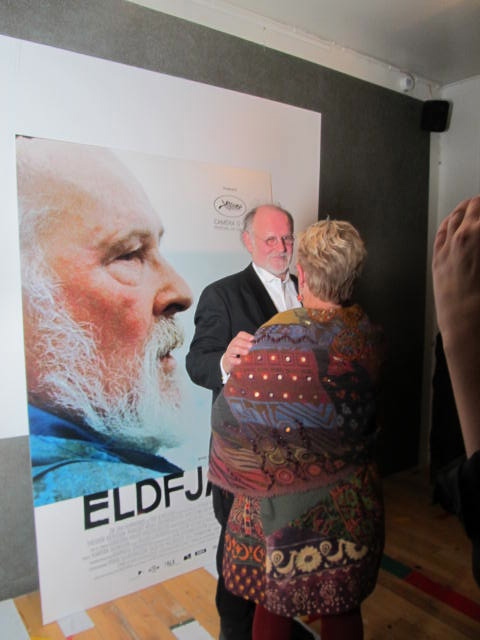
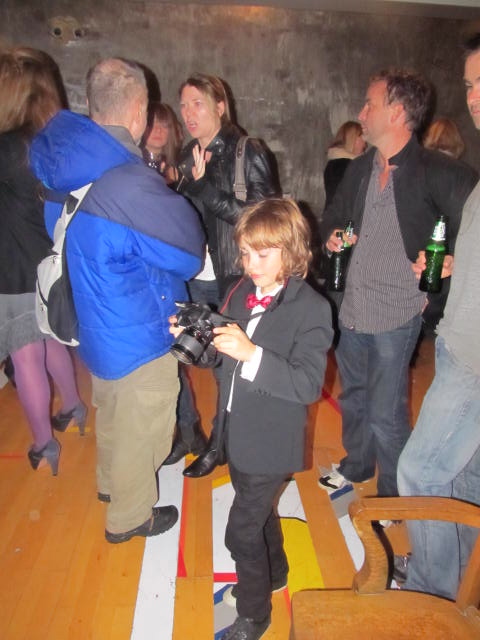
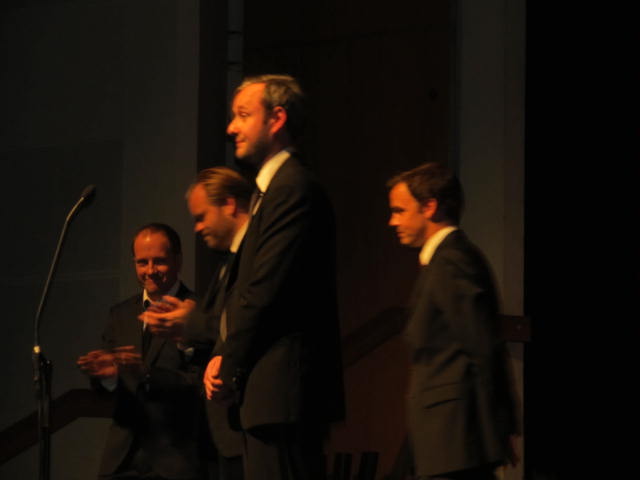
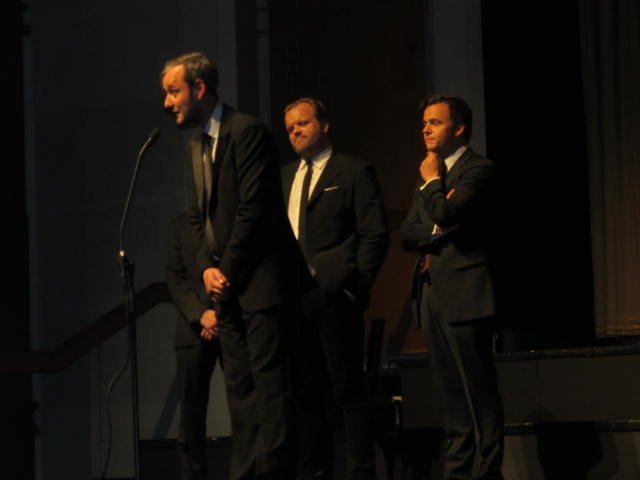
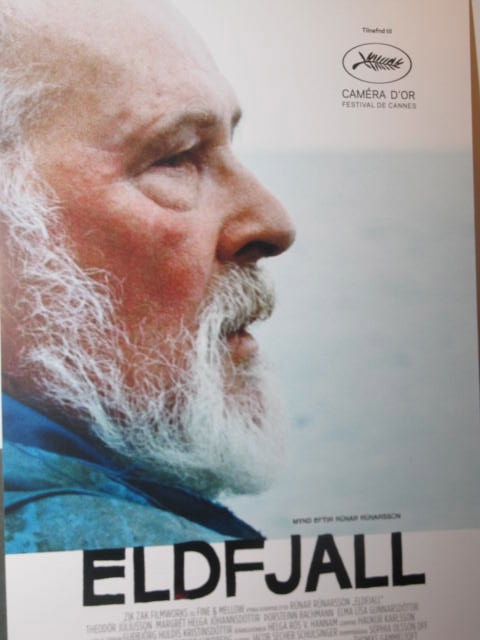
 Marinósdóttir Hrönn
Marinósdóttir Hrönn 


